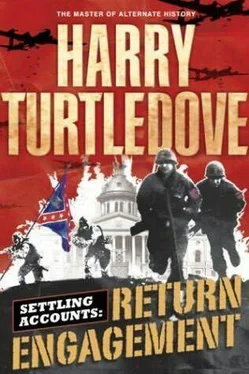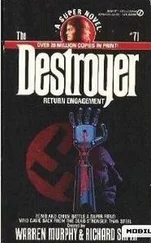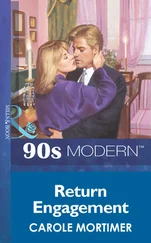Harry Turtledove - Return engagement
Здесь есть возможность читать онлайн «Harry Turtledove - Return engagement» весь текст электронной книги совершенно бесплатно (целиком полную версию без сокращений). В некоторых случаях можно слушать аудио, скачать через торрент в формате fb2 и присутствует краткое содержание. Жанр: История, на английском языке. Описание произведения, (предисловие) а так же отзывы посетителей доступны на портале библиотеки ЛибКат.
- Название:Return engagement
- Автор:
- Жанр:
- Год:неизвестен
- ISBN:нет данных
- Рейтинг книги:5 / 5. Голосов: 1
-
Избранное:Добавить в избранное
- Отзывы:
-
Ваша оценка:
- 100
- 1
- 2
- 3
- 4
- 5
Return engagement: краткое содержание, описание и аннотация
Предлагаем к чтению аннотацию, описание, краткое содержание или предисловие (зависит от того, что написал сам автор книги «Return engagement»). Если вы не нашли необходимую информацию о книге — напишите в комментариях, мы постараемся отыскать её.
Return engagement — читать онлайн бесплатно полную книгу (весь текст) целиком
Ниже представлен текст книги, разбитый по страницам. Система сохранения места последней прочитанной страницы, позволяет с удобством читать онлайн бесплатно книгу «Return engagement», без необходимости каждый раз заново искать на чём Вы остановились. Поставьте закладку, и сможете в любой момент перейти на страницу, на которой закончили чтение.
Интервал:
Закладка:
The promised hour to an hour and a half stretched out to closer to three. Dowling hadn't expected anything different. The crow or raven flew away. The important-looking man almost had a fit of apoplexy. Dowling almost hoped he would.
By the time the general got into Philadelphia, night had fallen. The train crawled in with blackout curtains over the windows and with no light on the engine. No one knew if Confederate bombers would come over; no one wanted to give them targets if they did. The station had black cloth awnings stretched over the platforms. Dim lights gathered arriving passengers through double curtains of black cloth into the more brightly lit interior.
"General Dowling?" The officer who waited inside was tall and lean and fair-pale, really-almost to the point of ghostliness. He wore eagles on his shoulder straps. His arm-of-service colors were the gold and black of the General Staff.
"Hello, Colonel Abell," Dowling said stiffly. Et tu, Brute? was what went through his mind. He had not got on well with General Staff officers since the days of the Great War. Part of that was guilt by association; he'd served with George Custer and Irving Morrell, both men who had little use for the stay-at-homes in Philadelphia and weren't shy about letting those stay-at-homes know it. And part of it was that Abner Dowling felt the same way. If John Abell and his fellow high foreheads were to help the Joint Committee on the Conduct of the War ease Dowling out…
"We have a car waiting for you, sir," Abell said. "If you'll just come with me…"
"I have a suitcase," Dowling said.
"It will be taken care of," the bloodless General Staff officer promised. "That sort of thing, after all, is why God made enlisted men."
He led Dowling out to a Chevrolet with headlights reduced to slits. A dent in one fender said the little bit of light they threw hadn't always been enough. "Nice of you to meet me," Dowling said as they got in. The driver-an enlisted man-started up the engine and put the auto in gear.
Colonel Abell lit a cigarette and offered Dowling the pack. He leaned close to give Dowling a light. Then he smiled-a surprisingly charming smile from someone usually so cold. "Don't worry, General," he said, amusement-amusement? yes, definitely amusement-lurking in his voice. "Our interests here run in the same direction."
"Do they?" Dowling said. Had the General Staff officer told him the sun was shining, he would have gone to a window and checked.
Abell laughed. The noise was slightly rusty, as if from disuse, but unmistakable. "As a matter of fact, they do. You don't want the Joint Committee crucifying you for losing Ohio, and the War Department doesn't want the Joint Committee crucifying it for allowing Ohio to be lost."
"Ah," Dowling said. That did make sense. In the War of Secession, the Joint Committee on the Conduct of the War had run rampant over the Army. No wonder Colonel Abell and his superiors were anxious to avoid a repeat performance.
"Are you a quick study, General?" Abell asked.
"Tolerably," Dowling answered. Anyone who'd served under Custer had to be a quick study, to find ways to get his superior out of the trouble he insisted on getting himself into. "Why?"
"Listen to me for about twenty minutes. With things the way they are, getting you to BOQ will take that long anyhow." Colonel Abell proceeded to fill Dowling's head with the inadequacies of U.S. military budgets, starting in the early 1920s and continuing to the present day. Dowling found himself nodding again and again. Abell finished, "You know perfectly well we could have put up a much stronger defense in Ohio if we'd had more and better materiel. I want you to let the Joint Committee know, too."
"They won't want to hear it," Dowling said. "Congress never wants to hear that anything is its fault. But I will tell them. I'll be delighted to-and I thank you for the chapter and verse."
"My pleasure, sir," Abell said as the Chevrolet pulled up in front of Bachelor Officer Quarters.
"Not altogether, Colonel," Dowling said. "Not altogether."
His suitcase had beaten him there. He wondered how that had happened. He slept better than he'd thought he would, and it wasn't just because the Confederates didn't come over that night.
The next morning, as another noncom drove him to the hall where the Joint Committee met, he got a look at what the bombers had done to Philadelphia when they did come over. It wasn't pretty. On the other hand, he'd seen worse in Ohio. Oddly, that thought steadied him. When he got to the hall and was sworn in, his first interrogator was a white-maned Socialist Senator from Idaho, a state that might never have seen a real, live Confederate and surely had never seen a hostile one. "Well, General, to what besides your own incompetence do you ascribe our failures in Ohio?" the Senator brayed.
"Sir, I think one of our worst problems is the fact that Congress put so little money into the military after the end of the Great War," Dowling answered. "And when the Confederates did start loading up, we didn't try to match them as hard as we might have. As I recall, sir"-as Colonel Abell had briefed him-"you last voted for an increased military appropriation in 1928-or was it, '27?"
He'd heard about men standing with their mouths hanging open while nothing came out. He wasn't sure he'd ever seen it, not till that moment. The sight was sweeter than the sugar he'd spooned into his morning coffee. After close to half a minute, the Senator recovered enough to say, "How dare you blame this august body for your own dismal failings?"
"Sir, war's been staring us in the face ever since Jake Featherston got elected. That's almost eight years ago now," Dowling said. "Anyone could see it. Plenty of people did see it. Why was Congress so slow about giving us the money to build and develop the tools we need to lick the son of a bitch?"
More bellows and barks followed, but the Senator from Idaho seemed more than a little disconcerted by answers he hadn't expected. He acted relieved to turn the grilling over to a Congresswoman from New York City. Flora Blackford said, "Instead of snarling at each other, what can Congress and the Army do to work together and gain the victory we have to have?"
A sensible question! Dowling had wondered if he'd hear any. "Get all our factories humming," he answered. "Make sure the raw materials reach them. Make sure the weapons reach the front. Keep the Confederates as busy as we can-never let 'em relax. Uh, knock Utah flat. And while we're at it, get the niggers in the CSA plenty of guns, as many as we can. That'll make sure Featherston's boys stay hopping."
It went on and on. There was more hostility from the committee members, but also, increasingly, a wary respect. Dowling had no idea whether they were really listening to him or just posturing for the hometown papers. He also had no idea whether he was saving his career or sinking it forever. The strange thing was, he didn't care. And it was amazing how liberating that could be.
Jake Featherston looked at the engineer in his cramped, glassed-in booth. Saul Goldman was in there with the engineer. The little Jew didn't usually look over people's shoulders like that-he wasn't pushy, the way sheenies were supposed to be. But this was a big speech. Featherston was glad to see Goldman there. When something needed doing, the director of communications made sure he was on the spot.
The engineer pointed through the glass. Jake nodded. The light on the wall above the booth glowed red. He was on.
"I'm Jake Featherston," he said, "and I'm here to tell you the truth." How many times had he said that on the wireless? More than he could count, by now. While he was saying it, he believed it every single time, too. That was what let him make other people believe it right along with him.
Читать дальшеИнтервал:
Закладка:
Похожие книги на «Return engagement»
Представляем Вашему вниманию похожие книги на «Return engagement» списком для выбора. Мы отобрали схожую по названию и смыслу литературу в надежде предоставить читателям больше вариантов отыскать новые, интересные, ещё непрочитанные произведения.
Обсуждение, отзывы о книге «Return engagement» и просто собственные мнения читателей. Оставьте ваши комментарии, напишите, что Вы думаете о произведении, его смысле или главных героях. Укажите что конкретно понравилось, а что нет, и почему Вы так считаете.












